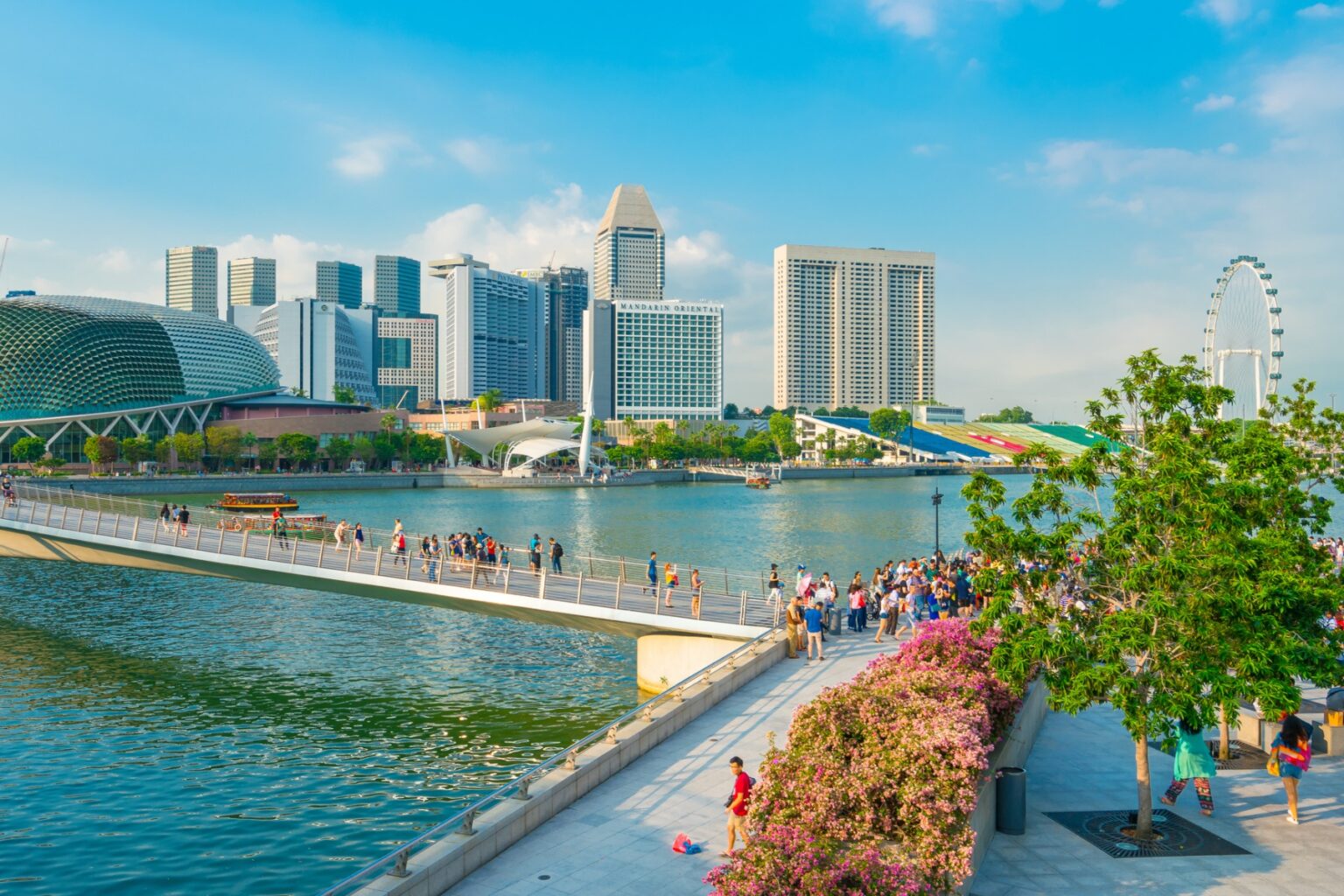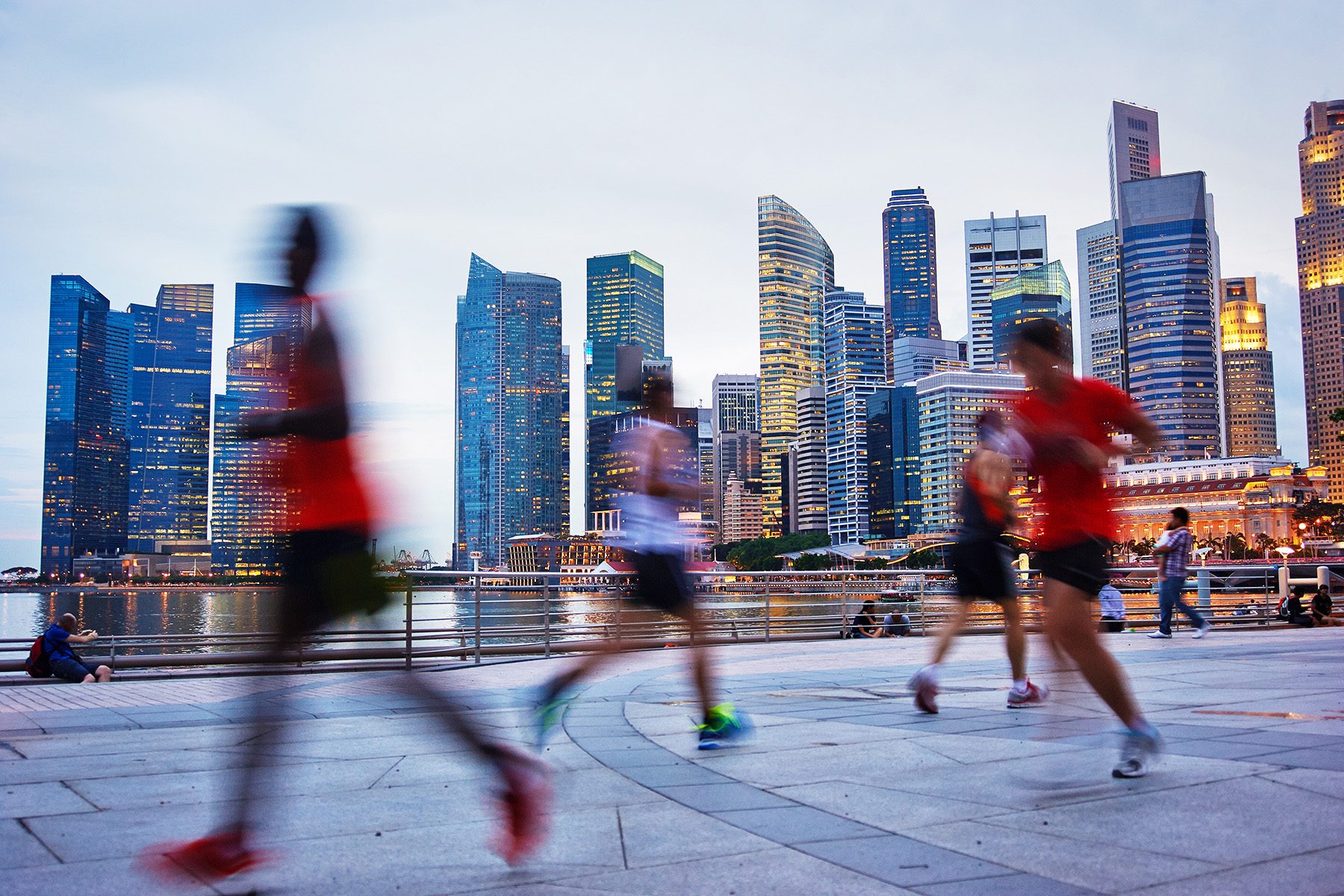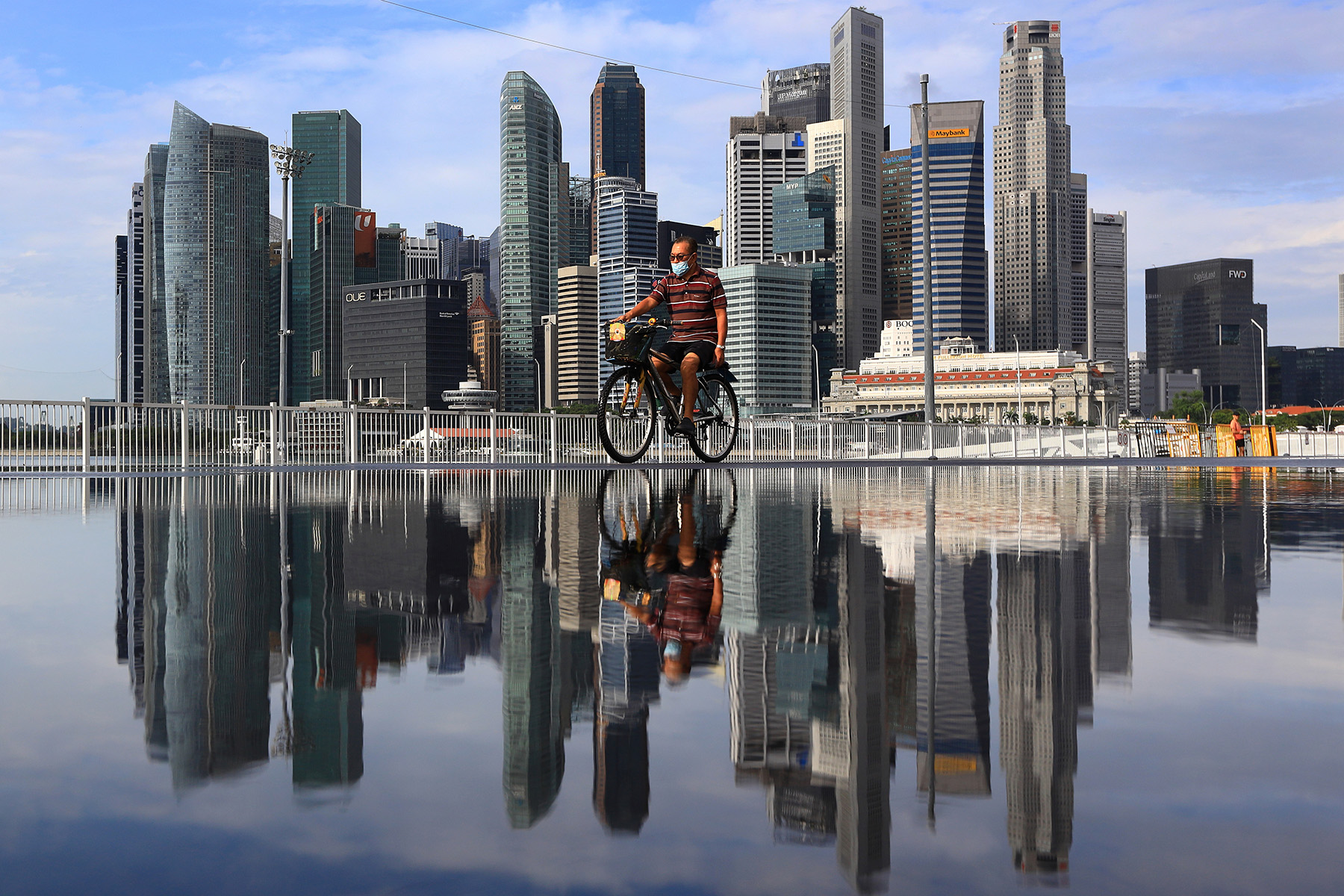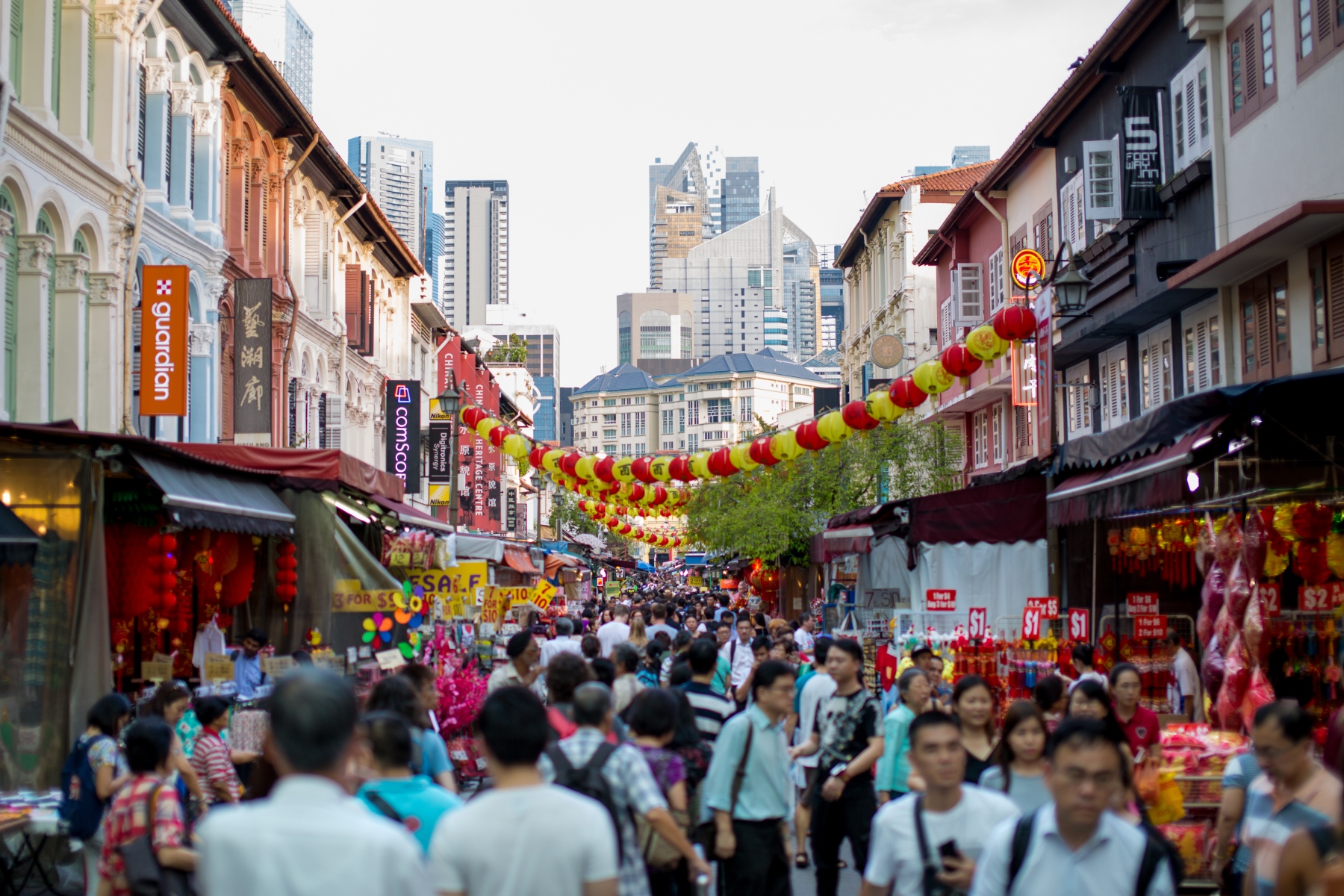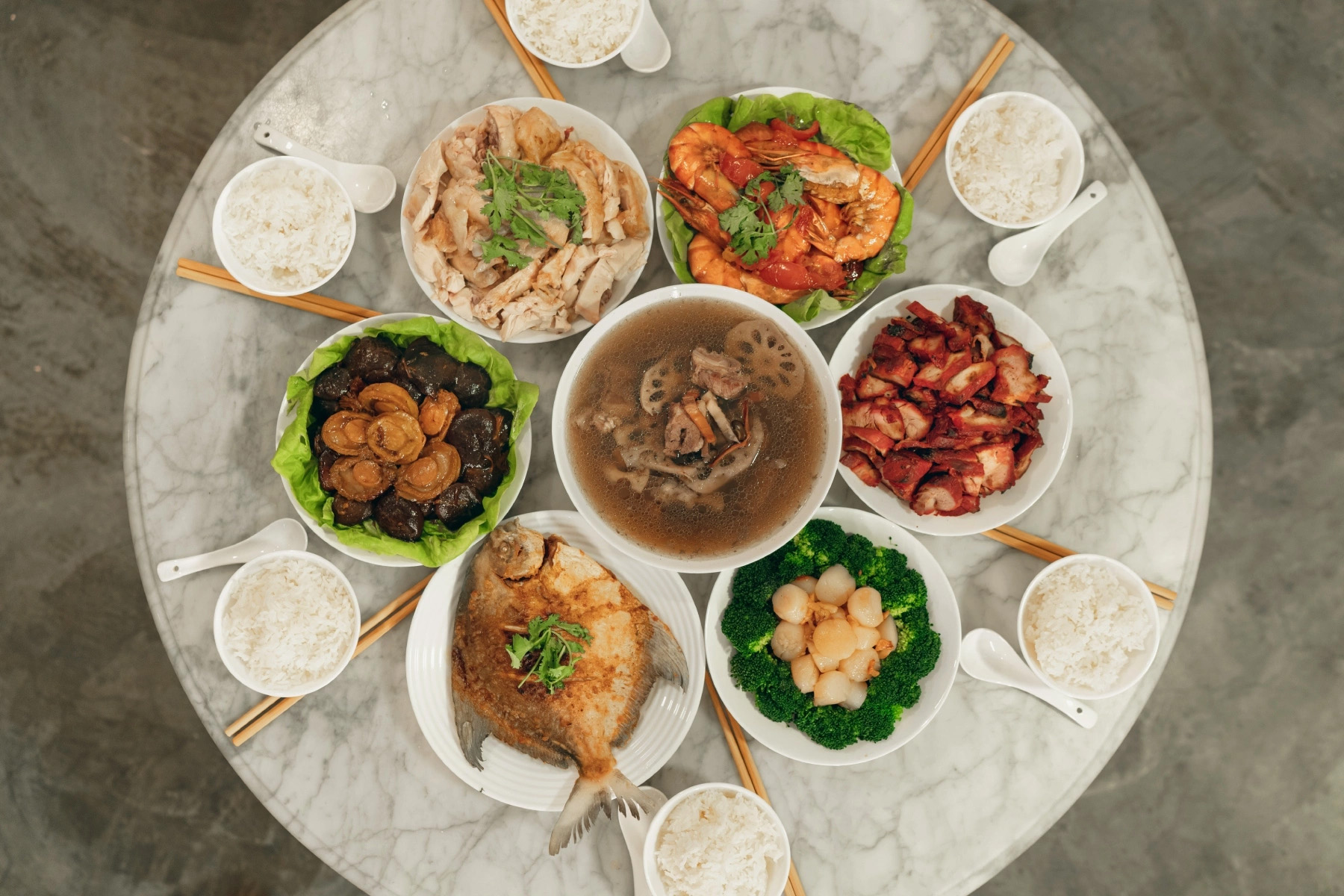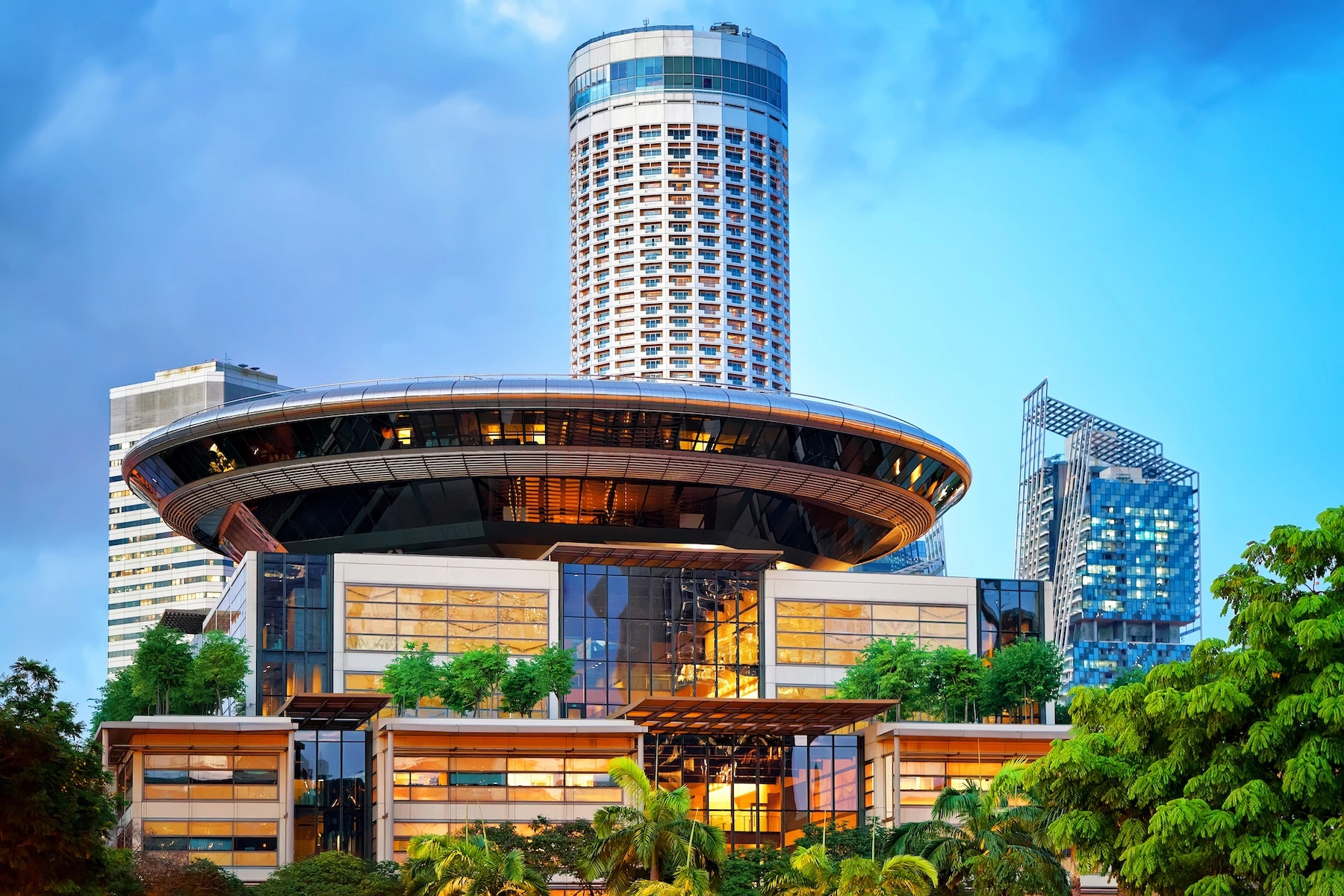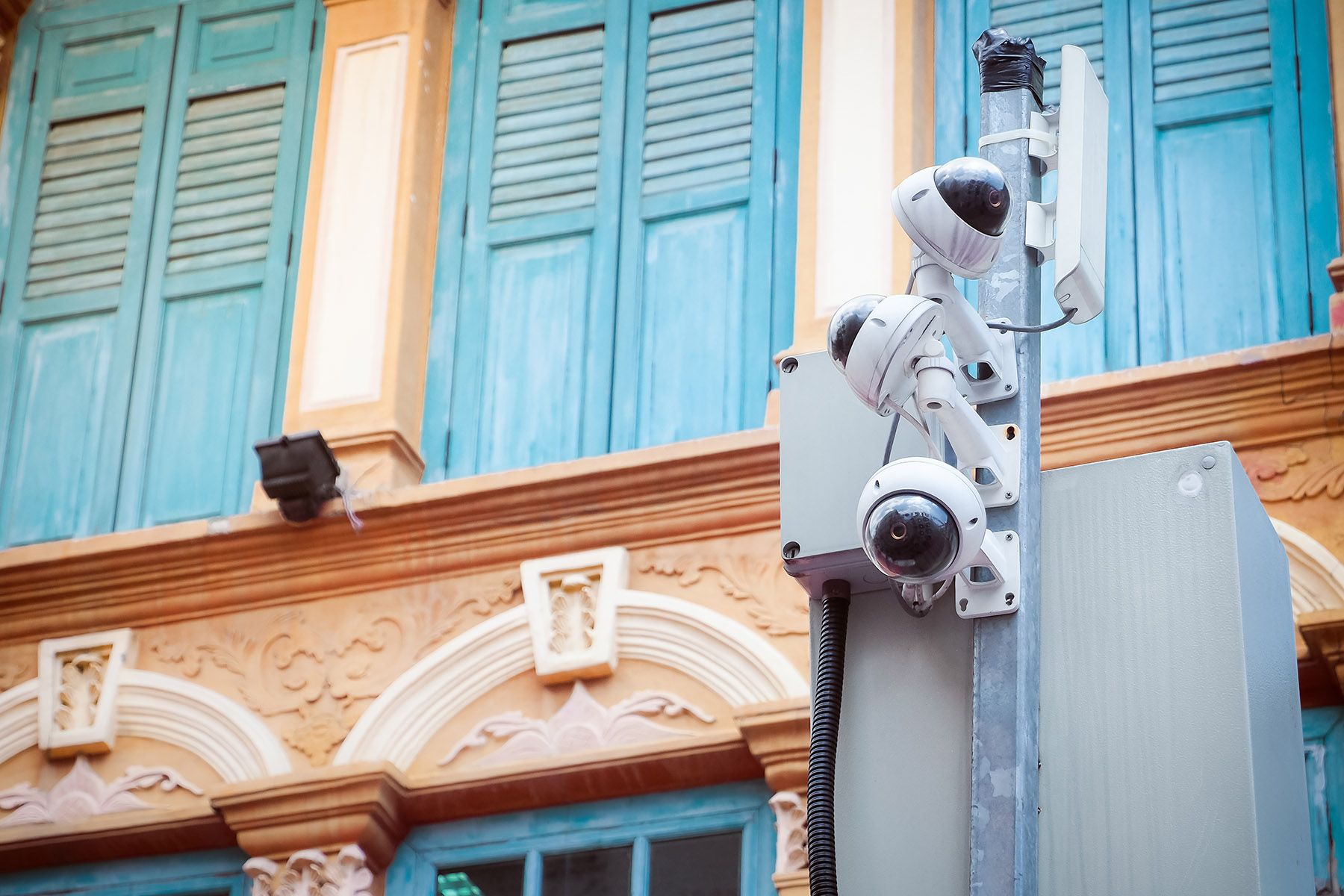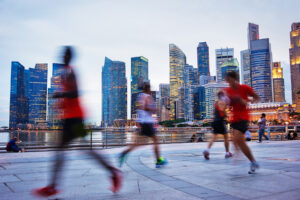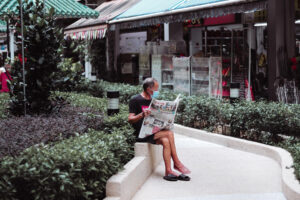Asia’s second smallest country, Singapore packs a lot into a little space, and not just the 5.92 million people who call the sultry island home. Indeed, the Lion City is an incredibly sought-after destination for expats from around the world. With superb infrastructure, year-round warm weather, fantastic job opportunities, low taxes, and dream holiday locations on its doorstep, what’s not to like?
To help you familiarize yourself with the country, and learn some valuable insider knowledge along the way, this article includes the following:
- An overview of Singapore
- What is the quality of life in Singapore?
- What is the geography of Singapore?
- Which are the main cities in Singapore?
- Singapore’s economy and living standards
- What are the people like in Singapore?
- What should you know about the lifestyle and culture?
- What is Singaporean cuisine like?
- Government and politics in Singapore
- What rights and freedoms do residents have?
- Does Singapore have a high crime rate?
- Can you access healthcare, welfare, and social security?
- What kind of education system does Singapore have?
- What is Singaporean business culture like?
- What is Singapore’s climate like?
- What are the best places to visit in Singapore?
- What are Singapore’s most important public holidays?
- Useful resources
An overview of Singapore
With good salaries, low taxes, year-round sunshine, and alluring travel opportunities, Singapore is the ultimate expat haven. A gleaming metropolis and economic miracle that literally emerged from swampy marshes off Peninsular Malaysia’s southern coast in just a few decades, it is a prosperous, cosmopolitan, melting pot like few others on earth.
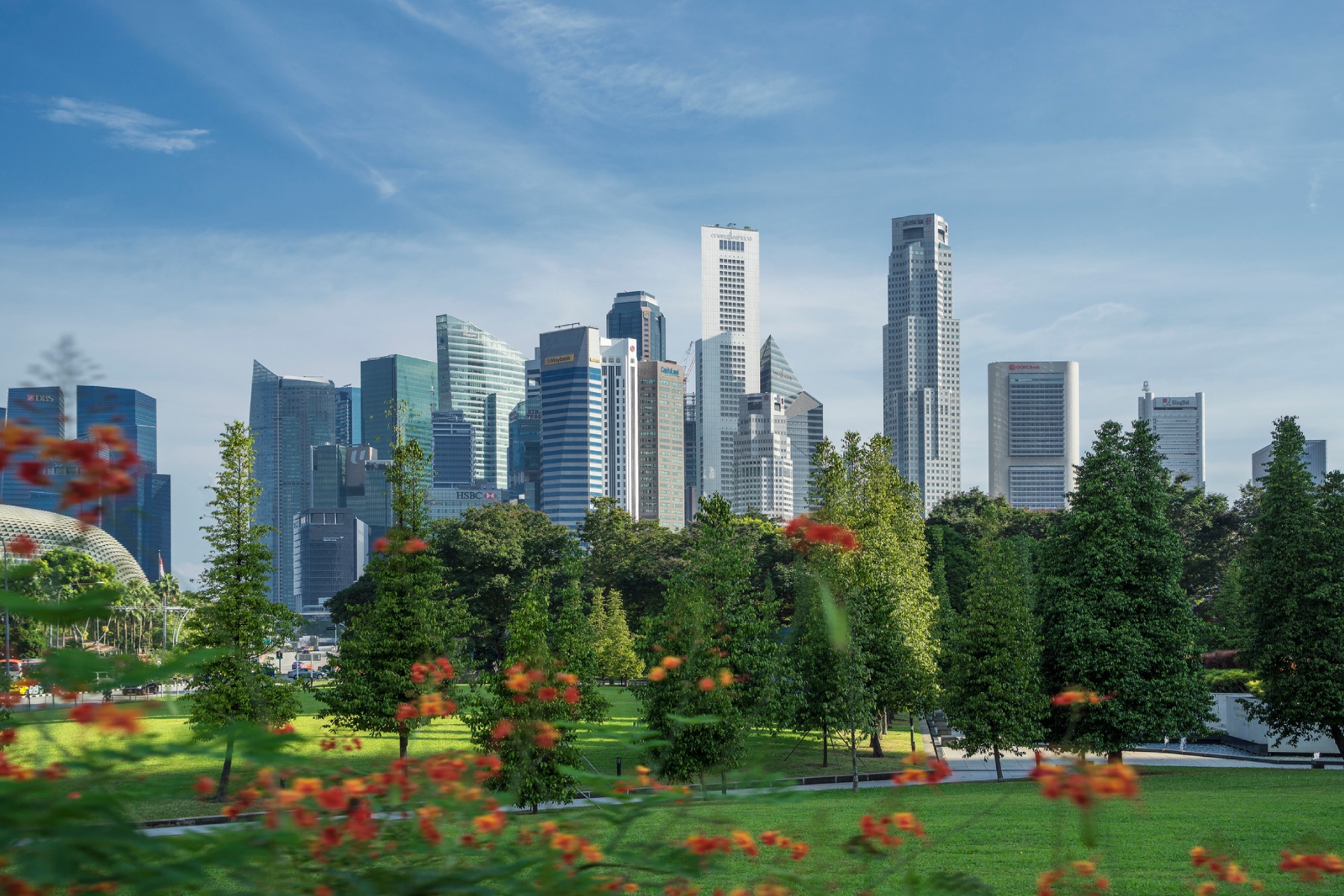
This is why around 1.6 million people – just over a quarter of Singapore’s population – from around the world call it home. As a result, the city is strikingly multicultural. It boasts a thriving expat community that is well-catered to, in terms of services and activities. Indeed, there is something to fulfill every need, whim, and fancy.
What is Singapore famous for?
Singapore is globally famous for several things – and not just the sickly-sweet cocktail that bears its name or the generic curry-flavored noodles found in Chinese takeaways across the world. And while it’s true that it is still rather straight-laced, and upholds its ‘fine city’ reputation, it is definitely learning to ‘chill out’.
Aside from its cliched obsession with cleanliness and order (but let’s debunk a myth here: you can chew gum here, you just can’t buy it, and don’t ever drop it in a public place!), there are other distinguishing features.
One is the fact there are no real seasons because Singapore lies just above the Equator. Therefore, you can expect to experience heat and humidity, burning sun, torrential rain, and thunderstorms like you never have before. And then there’s food, more food, and shopping.
However, for many expats, it is the more subtle aspects of life in Singapore that make it a great place to live, including the facts that:
- You don’t really ever have to lock your front door
- Anywhere is perfectly safe at any time
- You are living in one of the world’s lushest, greenest cities
- Public transport is so good that you really don’t need to own a car
What is the quality of life in Singapore?
By many metrics, Singapore boasts an enviable quality of life. Residents typically enjoy excellent salaries, low personal income tax, and fantastic infrastructure and transport. Moreover, it is home to world-renowned international schools, efficient public services, and great public spaces. So whether you are young, old, single, or have a family, it is a wonderful place to call home.
However, quality living does come at a cost, as Singapore – along with Zurich – ranks as the world’s most expensive city to live in the Economist Intelligence Unit’s Worldwide Cost of Living survey.
One reason for this is that land is scarce and the population is big, which means that rent is also high. Moreover, Singapore produces almost no consumer goods, which means that almost everything is imported. As a result, any goodies from home, which you will find in stores like Cold Storage or Marketplace, will come with hefty price tags. This is especially true if your tastes involve fine wines and cheese.
More affordable living
Singapore doesn’t have to be an absolute drain on the wallet, as there are ways to save some dollars. For instance, you can shop locally and buy your groceries from places like Tiong Bahru Market. This has a great selection of fruit, vegetables, and freshly caught seafood. The colorful Indian markets along Buffalo Road in Little India are also worth checking out.
Eating out can be as extravagant or frugal as you like. Sure, you can dine at Michelin-star restaurants, but most residents prefer to hang out at the thousands of casual venues in hawker centers – such as Lau Pa Sat – across the island.
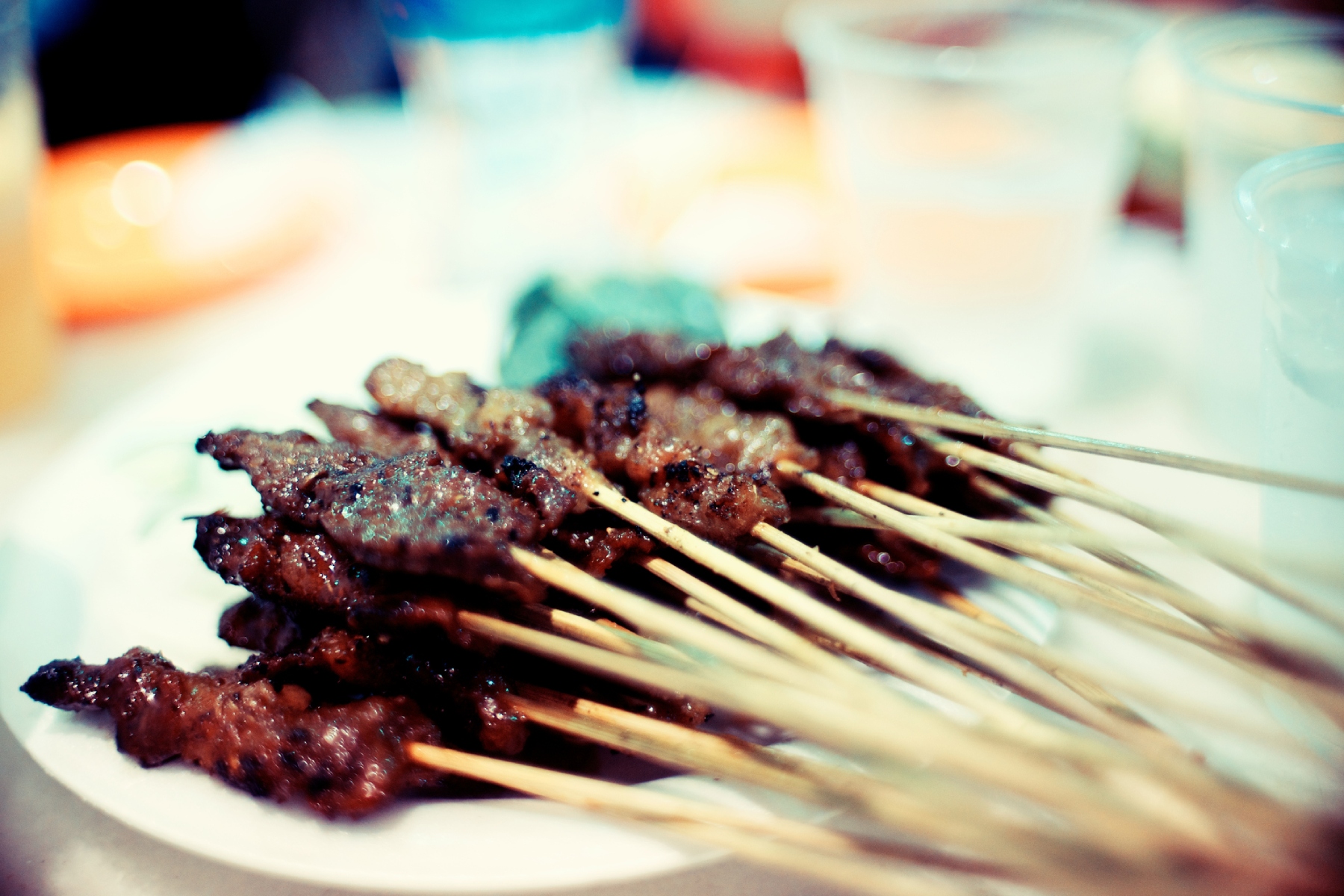
In fact, it is often cheaper to eat at these places than it is at home. And given that the average kitchen in Singapore is relatively small – compared to countries in the Global North at least – this is just as well. That said, home cooking is still important to many residents, and expats, in particular, often choose to live in private condominiums that have reasonably large kitchens.
If you are flexible on where you live, there are also cheaper districts across the island. And with great public transport on offer, nowhere is far.
Singapore would probably rank even higher on quality-of-life surveys if its work-life balance was more balanced. Unfortunately, this is a place where long working hours are still the norm.
What is the geography of Singapore?
As mentioned, Singapore is Asia’s second-smallest country, after The Maldives. It measures around 50 kilometers from west to east, and about 27 kilometers north to south. And nowhere is more than half an hour from the sea.
Singapore’s diminutive size also means that there is little variety when it comes to its landscape. The island may be an urban rainforest, but there is no spectacular scenery to get excited about. The highest point, Bukit Timah, is just 164 meters above sea level. So, if you want a vantage point over the whole island, it is best to head to the rooftop of Marina Bay Sands, from where every corner of Singapore unfolds.
As well as the main land, Singapore’s territory also includes a number of smaller islands and islets. For example, Pulau Ubin, which is close to the international airport at Changi, is a real step back in time. Meanwhile, Sentosa is a touristy, rather overdeveloped island that is not far from downtown.
The main island of Singapore is connected to the Malaysian ‘mainland’ by a one-kilometer-long bridge. It only takes a few minutes by bus, car, or even foot to get to the Malaysian city of Johor Bahru on the other side.
The best of both worlds
One of the most appealing things about living in Singapore is having all the trappings of a thriving metropolis, without the same level of noise, crazy crowds, and choking traffic that you might expect in other world cities.
Sure, Orchard Road on a Sunday afternoon can feel pretty dense. However, urban planners have been at pains to create a highly functional city that ‘breathes’.
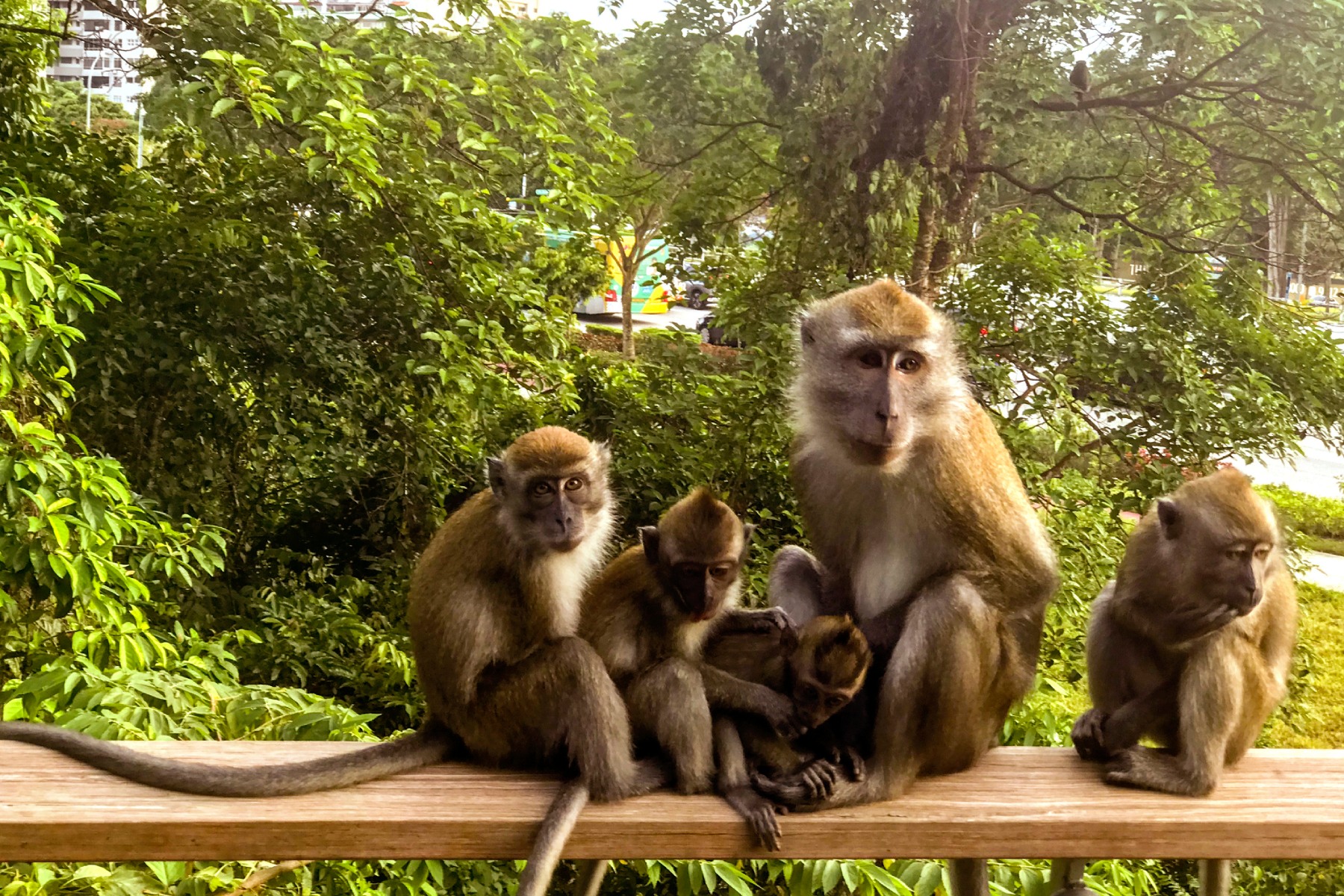
Indeed, even in downtown areas, nature is all around you. At dusk, you can enjoy the sound of the birds coming to roost in the big trees lining Orchard Road, dodge the cheeky monkeys in Bukit Timah Nature Reserve, and watch wild boars roam freely on Pulau Ubin. There are few other major global cities that co-exist so harmoniously with nature.
Which are the main cities in Singapore?
As a ‘city-state’, Singapore is simply a conurbation of districts. However, most expats favor living in one of the following areas:
River Valley
As the name suggests, this district stretches outwards from the Singapore River, which flows from the island to the sea at Marina Bay. This is the place to be if you want to live in a fancy condo and enjoy an endless array of bars, restaurants, and shops. Given these factors, it’s not hard to see why the area is especially popular for those without children.
The neighborhood runs from Clarke Quay in the south upstream to Robertson Quay and then on to Great World City at Zion Road, taking in Havelock Road.
The attractive walkways and cycle paths along the lazy river are great for exercise or a pub crawl – or both. The river is also home to a cute family of wild otters whose frolics provide much early-morning entertainment to passers-by.
Holland Village
Until the river quays became trendy in the 2000s, expat life tended to revolve around Holland Village, which lies just a few kilometers (or MRT stops) from downtown Singapore.
However, Holland Village still has that real expat feel, with several international schools nearby. It also manages to retain a certain charm that the trendier districts simply lack. This can be seen in the narrow streets that are packed with restaurants, bars, massage parlors, and nail spas.
Notably, the area is also home to several very well-stocked supermarkets and some really tasty bakeries that sell all kinds of contemporary cakes and pastries.
East Coast
It might have a drearily generic name (Singapore does dreary names well), but this district is exactly what it says on the tin. East Coast is a long, narrow strip that runs parallel to the manicured East Coast Park and its beaches and bike path. It also encompasses the East Coast Parkway (ECP), which is the main route from the CBD to Changi Airport.
This district is quieter and cheaper than River Valley and tends to be more popular with families seeking more living space and a laid-back lifestyle.
West Coast
West Coast is a slightly more recent addition to the ‘expat-friendly’ city districts. While the western part is largely industrial, the eastern and central parts of the area are mostly filled with private housing along with a single Housing & Development Board (HDB) estate.
West Coast also has the rather unattractive sprawl of the world’s second-biggest port as its backdrop. On the plus side, however, accommodation options are plentiful and cheaper than other expat hang-outs. Moreover, the island playground of Sentosa is a short hop, skip, and jump away.
Singapore’s economy and living standards
Singapore is a meticulously planned country. While some residents feel that the almost forensic planning gives it a sterile air, others appreciate the fact that this has resulted in a highly functioning, liveable city.
Singapore is incredibly international and remains one of the world’s great trading posts and financial centers. Its banking and insurance industries rival London, New York, and Hong Kong. It also has the second-largest port in the world, and its airport connects it with pretty much anywhere on Earth.
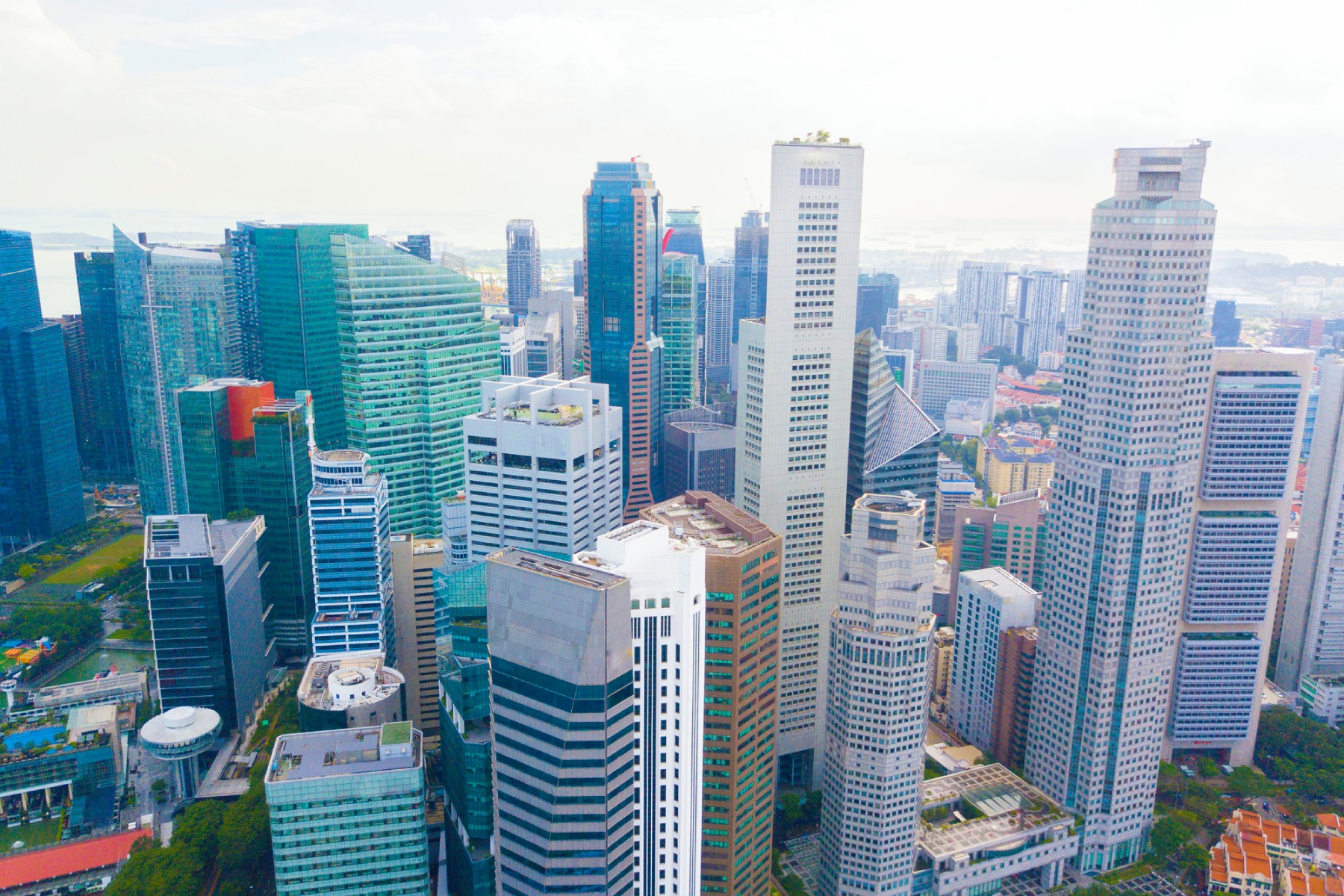
Funnily enough, Singapore is one of the few places in the world where plane delays are actually a pleasure. This is largely owing to the fact that it boasts the ‘World’s Best Airport’ – Changi – which features the world’s tallest indoor waterfall, at over 40 meters high.
The city is also on the leisure and tourism trail and is a popular launch pad for Southeast Asian adventures. And finally, as a low-tax country that offers a range of incentives and grants for start-ups, Singapore also has a dynamic, entrepreneurial vibe that is highly attractive to many expats.
Many people have made their fortunes on this tiny island. In fact, according to the International Monetary Fund (IMF), it has the world’s third-highest per capita GDP (US$133,000). This is significantly higher than neighboring Malaysia, which comes in at just US$37,000.
Indeed, Singapore’s economy has proven time and time again to be resilient in the face of global crises such as the COVID-19 pandemic, and its people can thank meticulous planning for that.
What are the people like in Singapore?
One of the first things that most expats notice when they arrive in Singapore is just how multi-ethnic, multi-cultural, and harmonious it seems.
That includes Singaporeans themselves, who broadly identify as being from one of three ethnic groups: Chinese (three-quarters of the citizen population), Malay (14% of the native population), or Indian (9%). There is also a small number of citizens of other origin.
Despite this proud cultural and linguistic mix, traces of its links to Britain remain in everyday life. For instance, unlike anywhere else in Asia, traffic signs are exclusively in English, while important public places are displayed in all four official languages. Moreover, many streets still bear very British names. However, these outward appearances only tell a small part of the story.
Singapore is definitely Asian. Society is typically conformist and community-minded, and fiercely competitive; both in education and work life. Citizens are generally very well educated, with high participation in higher education. Notably, all Singaporean and Permanent Resident (PR) males must complete two years of national service.
One noticeable aspect of Singapore society – from an expat perspective – is in the workplace; the country is based on a hierarchy, where age and seniority of position are highly respected. Business etiquette places great importance on this, and it is something that foreign employees should be aware of, even in an otherwise Americanized workplace.
What should you know about the lifestyle and culture?
With arts venues aplenty, a terrific national theater, loads of live music, and year-round festivals, Singapore is no cultural wasteland.
That said, ask any Singaporean how they best like to spend their time and they will almost certainly say shopping and eating with family, friends, or even with colleagues. In a city that is famed for working hard, its people certainly play hard in the thousands of cafes, hawker centers, restaurants, bars, and icy air-conditioned malls. And given the island’s sapping equatorial heat and humidity, who can blame them?
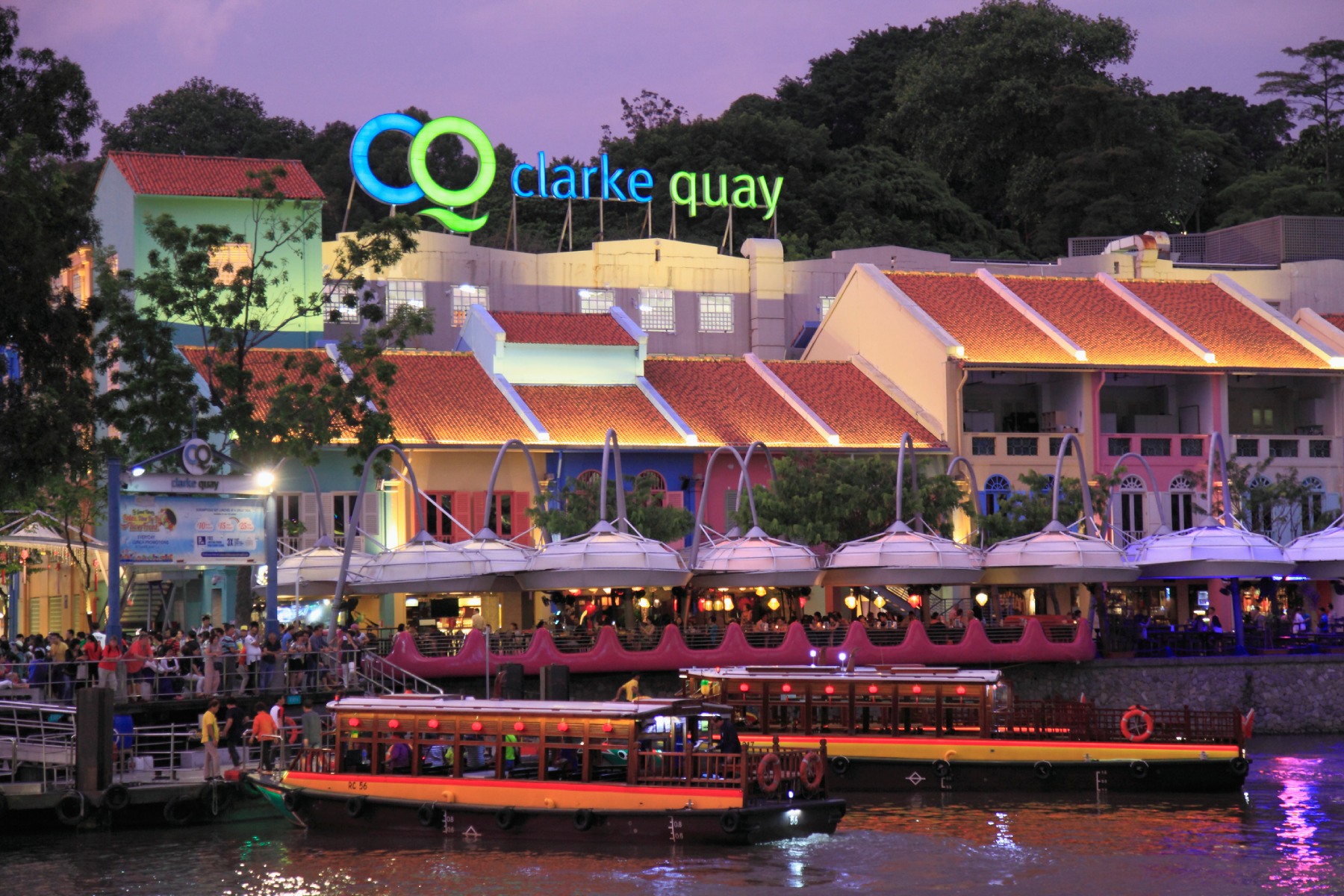
In this climate, being in, on, or near water is popular. Joining a dragon boating team down on the Kallang Basin is an energetic way to spend a weekend morning and make friends. For others, meanwhile, slathering on the Factor 40 and hitting the beach or relaxing by the condo pool is as active as it gets. The little sliver of breezy beach at Changi Point is particularly popular, especially as it has the added bonus of watching the planes landing at the airport nearby.
Popular pastimes
There are also many of the other trappings of big city-meets-country living in Singapore. For instance, pottery and cookery classes, running, and golf and country club memberships are all common. There is even a husky owners’ club (yes, we have asked the question, and apparently, they really do adapt well to the climate).
Walking the Kent Ridge Park over the striking Henderson Waves structure is also a pleasant way to work up an appetite on a Sunday morning for one of the island’s glitzy champagne brunches at hotels like The Fullerton or Shangri-La.
Football is arguably the most popular spectator sport in the Lion City. And once a year, the Formula One circus brings glitz, glamour, and noise to downtown Singapore. Needless to say, these are some of the hottest tickets in town.
What is Singaporean cuisine like?
If there is one way to ignite the passions – and perhaps divide opinions of – Singapore’s residents, it is on the subject of food. Everyone has an opinion on the best char kway teow (consensus is the stall at Zion Road Hawker Centre is right up there, as the snaking queues testify), nasi lemak, bak kut teh, or fish head curry. Whatever your cravings or tastes are, though, Singapore will surely satisfy them.
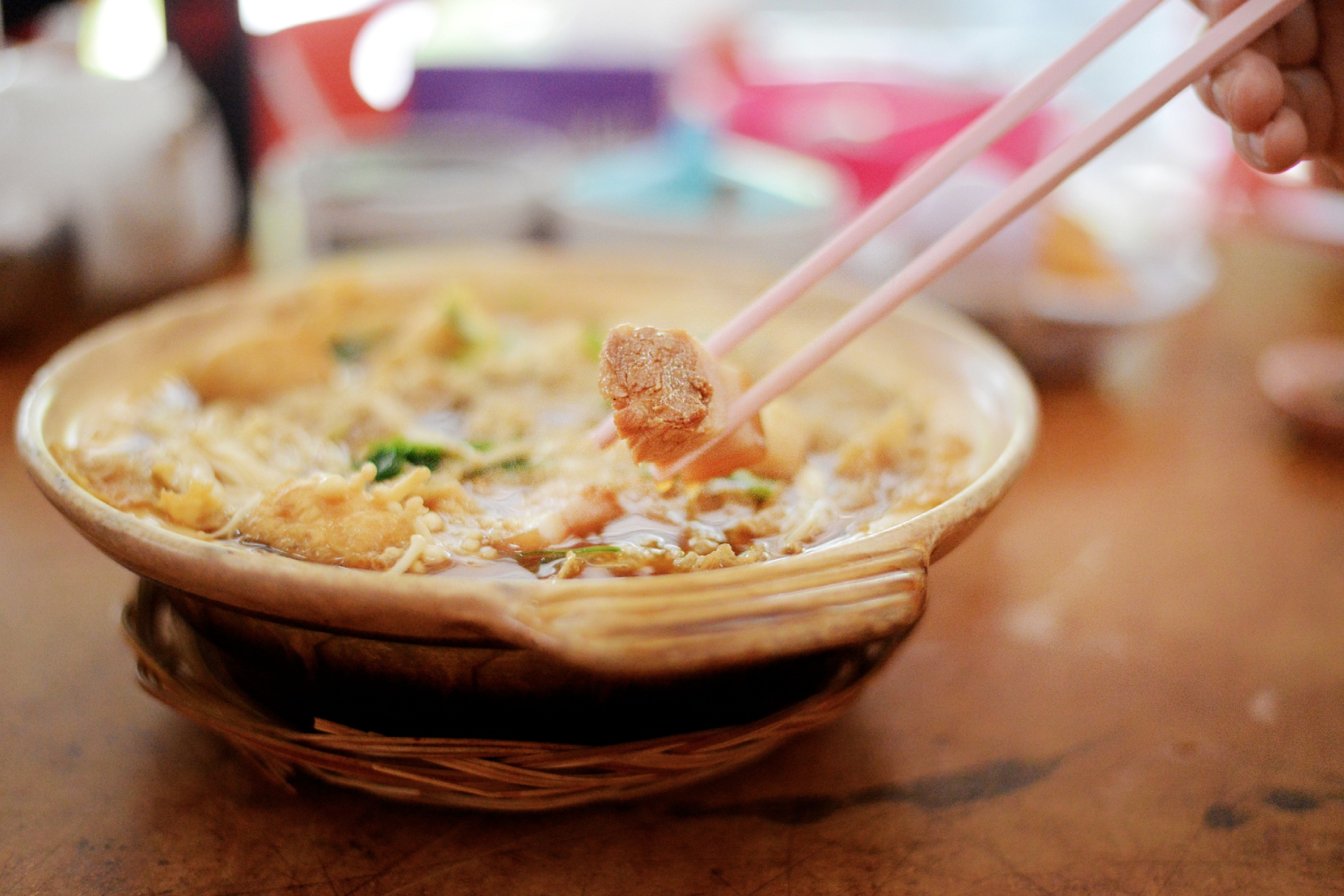
Singapore’s three main ethnic groups naturally set the culinary tone. Oddly, Chinatown is more for tourists and you will find better Chinese food elsewhere in the city. The Hainanese chicken rice from Five Star Chicken Rice on River Valley Road, for instance, is a must-try; as is the Michelin-starred version at Tian Tian. The fabulous chili crab in the East Coast Seafood Centre is also a winner.
For Indian food, on the other hand, Race Course Road near Little India is always a good bet. The fish head curry at Banana Leaf Apollo is legendary. For Malay ‘makan‘, nasi lemak is great from stalls in local neighborhoods like Bugis.

Local expert
Gayatri Bhaumik
Insider tip
While the Singapore Sling cocktail may be synonymous with the city – and it’s true that it was invented at the Raffles Hotel – it isn’t really seen as the national drink.rnrnA more local tipple is Tiger beer, or teh tarik (a strong brew of black tea blended with condensed milk) which is available from stalls across the island. Notably, if you buy one at a hawker center, it will likely be served in a plastic bag with a straw.
There are also numerous international restaurants across Singapore. For instance, the quays satisfy most cravings, but with prices to match. Meanwhile, the popular expat haunt, Holland Village, offers numerous dining options from around the globe.
Government and politics in Singapore
Singapore is a republic, with an elected prime minister, and parliamentary elections are held every four years. Any Singaporean aged 21 and over is eligible to vote.
The People’s Action Party (PAP) is the overwhelmingly dominant political force and has been in power since the country gained independence from Britain in 1965. There is also a president, although this is largely a ceremonial role.
Singapore enjoys good international relations with countries around the world. It is a member of the Association of Southeast Asian Nations (ASEAN) and treads a fine diplomatic line as a friend of emerging regional powers China and India, as well as the US and other traditional allies.
Singapore’s ties with Malaysia occasionally become strained. However, they never escalate beyond diplomatic squabbles and a little media baiting. Singapore also suffers from seasonal ‘slash and burn’ crop clearance on the nearby Indonesian island of Sumatra, which can leave a dark and unpleasant haze plume over Singapore.
What rights and freedoms do residents have?
Singapore ranks 48th on the World Population Review’s Human Freedom Index, which scores countries across 12 categories. These include:
- the Rule of Law
- Security and Safety
- Movement
- Religion
- Association
- Assembly and Civil Society
- Expression and Information
- Identity and Relationships
- Size of Government
- Legal System and Property Rights
- Access to Sound Money
- Freedom to Trade Internationally
- Regulation
Singapore scores highly in several of the categories above. Rule of law is well enshrined in the legal system and culture, corruption levels are some of the lowest on earth, as are crime rates. There are also no restrictions on social mobility, and religion can be practiced freely.
Freedom of speech
The Constitution explicitly guarantees Singapore citizens the rights to freedom of speech and expression, peaceful assembly without arms, and association. In practical terms, however, Singaporeans are generally not inclined to openly express strong political views. Interestingly, there is a Speaker’s Corner in a downtown park, but large protests are almost unheard of.
Singapore also ranks low (in 129th place) on the World Press Freedom Index, which is compiled by Reporters Without Borders. Indeed, freedom of the press is almost non-existent. The main English-language newspaper is The Straits Times, which is a comprehensive – if not rather anodyne – publication that offers beige commentary on Singapore life, business, politics, culture, and society.
A progressing society
Despite some restrictions, significant progress is being made in some areas of Singaporean society. For instance, women play a full role in politics, the judiciary, and the boardroom, and no other country in the Asia Pacific region has more female CEOs and CFOs.
Singapore is also becoming a slightly less repressive place for the LGBTQ community. In 2022, parliament lifted a criminal ban on sex between men, although LGBTQ people still do not enjoy the same rights in marriage as heterosexual couples. That said, Singapore is still a fairly conservative (albeit tolerant) society, and open displays of same-sex affection are uncommon.
Does Singapore have a high crime rate?
In a word: no. There are few things more cherished by all Singapore residents than its famously low crime rates, and this factors highly in the city’s overall quality of life.
Although you will still see police officers on the street or on patrol – especially in MTR stations and nightlife districts – you would have to be really unlucky to be the victim of theft or assault; let alone anything more serious. Drop your wallet or phone in a bar or on the street and the chances are you will get it back.
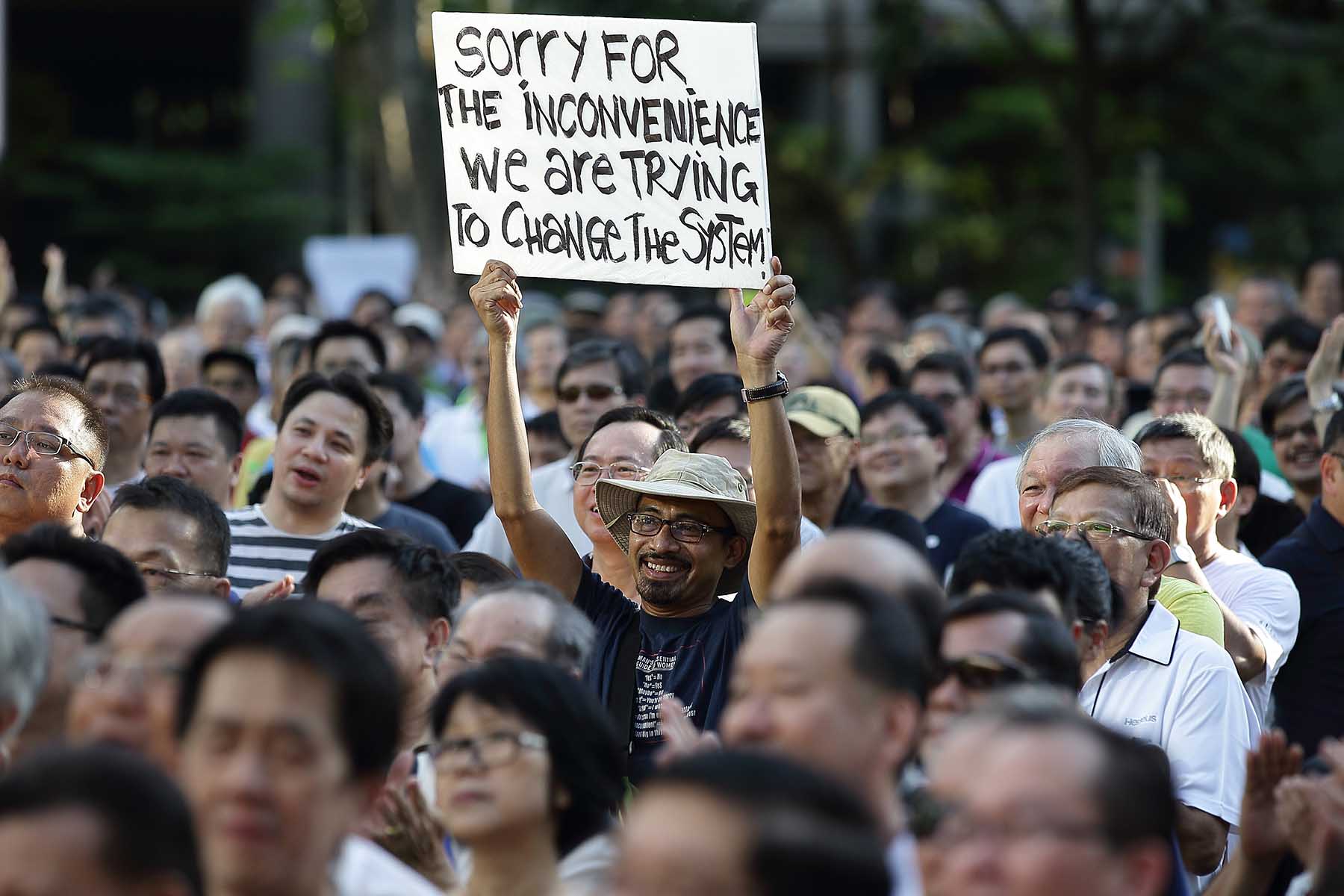
One reason for all this is that Singapore’s strict laws are rigorously enforced. It is also a relatively wealthy country with a close-knit community that upholds strong values. Therefore, any sort of criminality is frowned upon. Doing time in Changi Prison is on no resident’s bucket list, either.
Can you access healthcare, welfare, and social security?
While Singapore is sometimes portrayed as some kind of social utopia – and it does certainly offer a very high standard of living – it can be a stressful and slightly restrictive and up-tight place to live.
Despite this, it still manages to rank 25th on the World Population Review’s World Happiness Report, which rates countries on per capita GDP, life expectancy, social support, freedom of life choices, and population generosity; as well as other categories.
According to the World Bank, Singapore also has one of the world’s highest life expectancies which is supported by a very sophisticated healthcare system. To access it, citizens and permanent residents must make a compulsory monthly Central Provident Fund (CPF) contribution from their salary. This covers around 70% of the total costs of medical treatment.
Permanent residents’ care costs are subsidized to the tune of about 20%. Meanwhile, expats on Employment Permits pay the full fees. As a result, it is normal for expats to have a medical insurance policy for themselves and their families during their stay in Singapore.
This is often included as part of the employment contract. However, some expats purchase their own private policies depending on the level of coverage they need. If you’re looking for an expat-friendly health insurance policy from an international provider, check out these options:
Remember that once you reach permanent residency status in Singapore, you will automatically be signed up to the subsidized government healthcare scheme.
What kind of education system does Singapore have?
If there is one word to describe Singapore’s education system, it is ‘competitive’. The island’s schools are often held up as bastions of academic achievement. They place a strong emphasis on academic attainment at almost any cost. The result is a pressure cooker environment where top grades are the holy grail.
That said, things are slowly changing as the curriculum is being influenced by the growing demand of companies that require greater levels of critical thinking. As a result, rote learning, where pupils are not allowed to question their teachers under any circumstances, is becoming more unfashionable.

Given the importance that Singapore places on education, it is hardly surprising that the country boasts some of the highest rates of higher education attendance in Asia. It also ranks an impressive second on the English Proficiency Index.
The island boasts an array of great international schools, although places are at a premium and annual fees are steep. These schools cater to the many different expat nationalities in the country.
What is Singaporean business culture like?
As one of Asia Pacific’s most powerful, dynamic, and resilient economies, it is not surprising that employment levels are high. In fact, according to the government’s labor department, around 67.5% of eligible residents were employed in 2022.
In terms of sectors, Singapore’s main players include financial services, banking, insurance, shipping and logistics, manufacturing, construction and hospitality.
Singapore is a global business hub and therefore extremely entrepreneurial. It has a thriving start-up ecosystem and some 12.55% of the population is classed as ‘self-employed’. Moreover, 12.7% of the population is classified as ‘millionaires’, and only Switzerland and Hong Kong have more per capita.
Singapore’s work and business culture is often fast-paced, results-driven, and competitive. Discrimination does happen, particularly between different nationalities, and low-level politics is something that expats must sometimes navigate.
Singapore also follows the old Asian cliché of long working hours where employees dare not go home before the boss. And while multinationals with offices in Singapore are leading a change in work culture, old habits die hard in local organizations. Indeed, traditional hierarchies and work practices persist in the Lion City. Standard work hours are 09:00 to 18:00.
One interesting feature of the workplace in Singapore is the number of old people who are still in employment. Indeed, it is very normal to see pensioner-age cashiers in McDonald’s or Starbucks. Again, this is not only a reflection of the very high costs of living in the city but also its strong work ethic.
What is Singapore’s climate like?
If you are packing your bags for Singapore, make sure you pick your wardrobe carefully. After all, clothes that cling inelegantly to your sweaty body are not a good look, and every day is a bad hair day in this super-humid city.
As mentioned, there are no real seasons and it is hot, humid, sunny, and rainy all year round. It can rain a bit more in November, and January evenings do get slightly cooler, but you will never need a jacket outside.
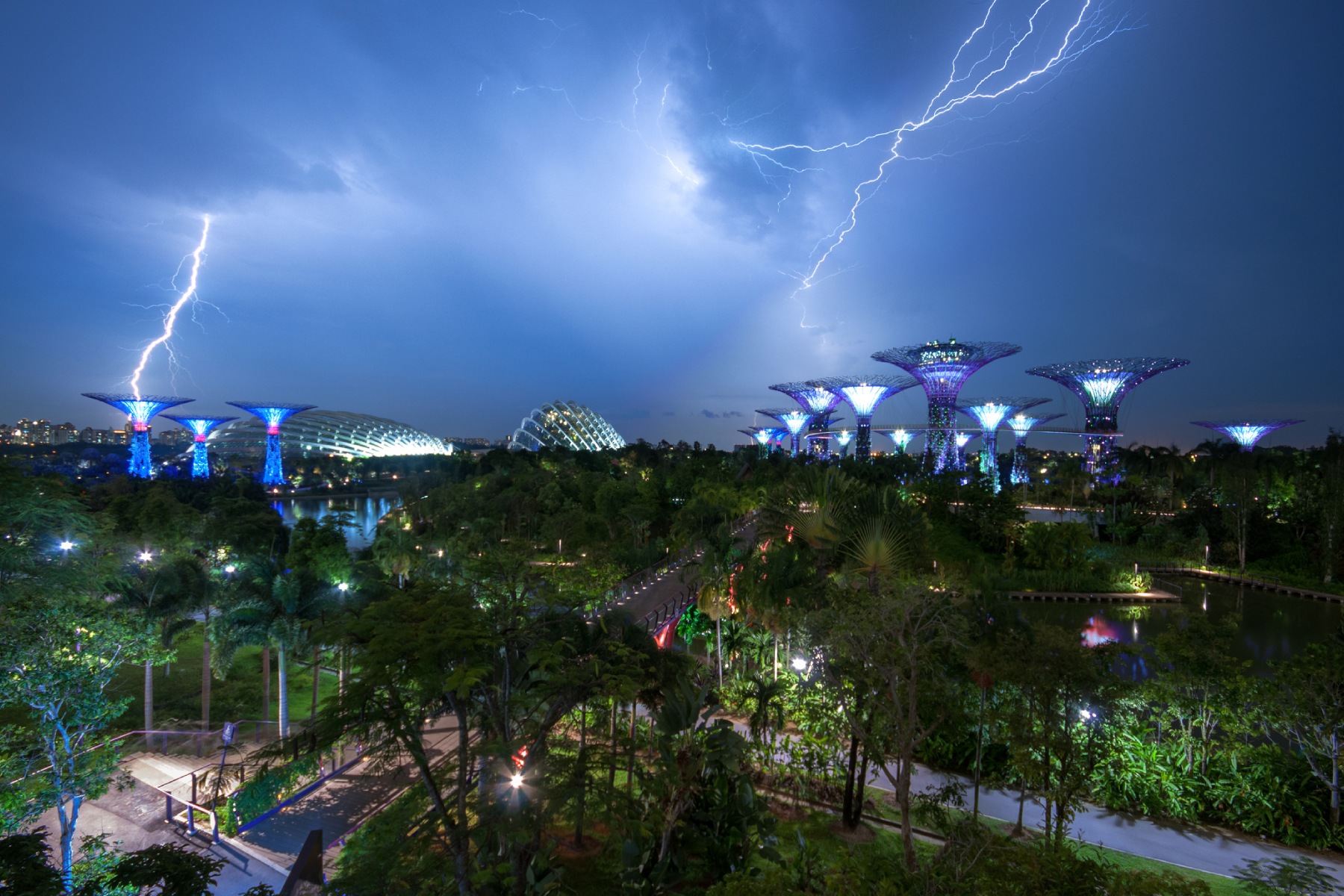
If you enjoy thunderstorms, then you are in luck, as Singapore is one of the world’s most lightning-prone cities. In fact, storms occur on almost half of all days. Notably, it is best not to walk around with an umbrella during a raging storm and instead dip into a hawker center, coffee shop, or bar and enjoy watching nature’s awesome firework display.
Low pollution levels
Singapore is one of the world’s most densely populated cities, although it doesn’t feel like it with all the green open spaces everywhere and light traffic in most places. Thankfully, this also means that pollution levels are low, which is another big plus point for residents.
Singapore is no smoggy, traffic-choked Jakarta, although it does suffer from an unpleasant smoke haze caused by the seasonal crop clearance in nearby areas of Indonesia.
Environmental living
Singapore promotes environmental sustainability. However, it still has some way to go if it wants to improve its global ranking. Sustainability initiatives are articulated through the Singapore Green Plan 2030.
One of the joys of living in downtown Singapore is being able to enjoy both the trappings of big city life while experiencing tremendous biodiversity all around. Indeed, there are few large global cities where it is possible to come face-to-face with a giant monitor lizard patrolling slowly along the banks of the Singapore River, watch a beautiful yellow oriole flit from tree to tree, or marvel at the flora growing naturally along public paths and roads.
What are the best places to visit in Singapore?
Pulau Ubin
Located off Singapore’s northeastern coast, just a 15-minute bumboat ride from Changi Point Ferry Terminal, Pulau Ubin is a place where few visitors – or even residents – make the effort to go. This is probably a good thing, too.
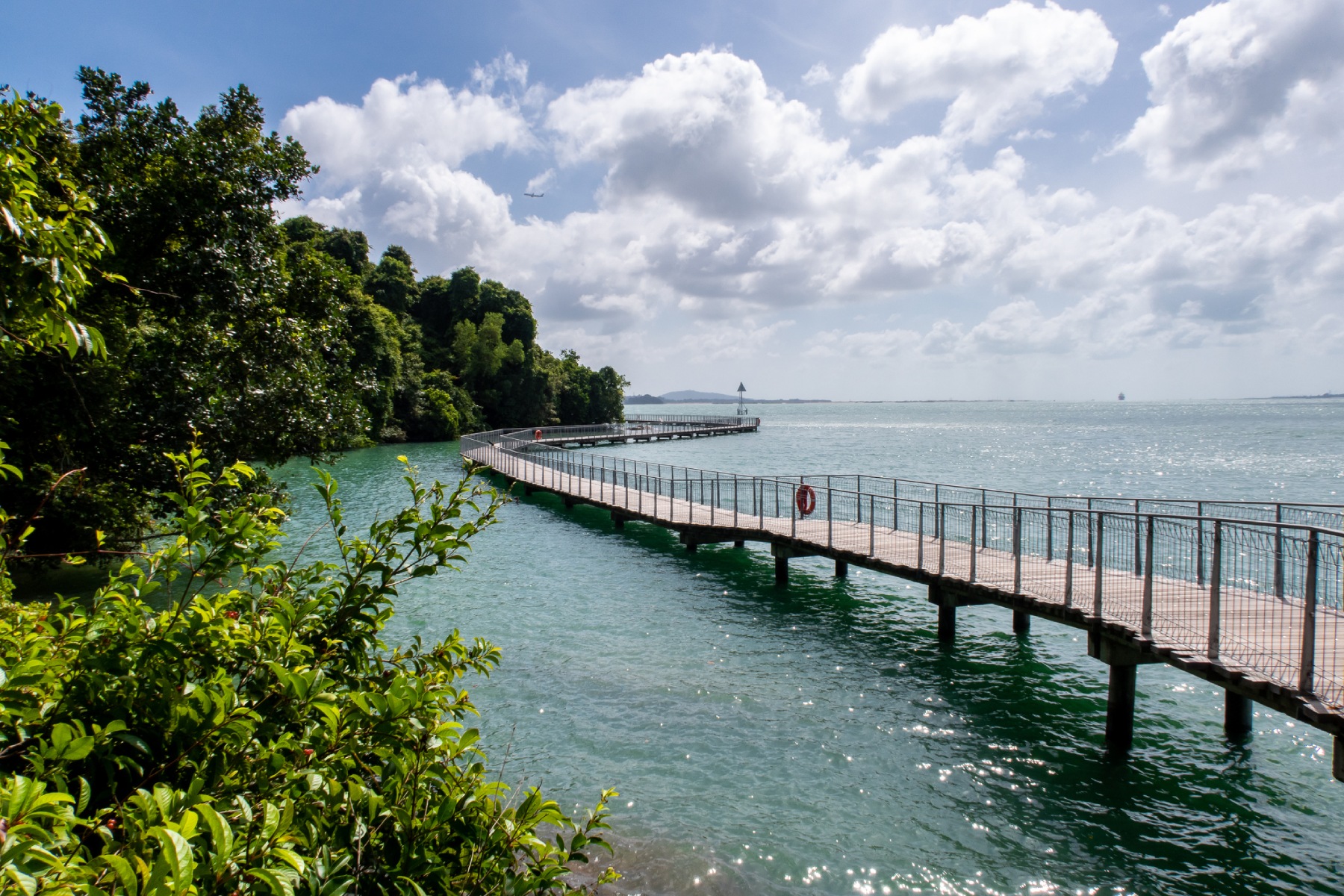
The island is basically described as a snapshot of what Singapore was like decades ago. And as the bumboat from Changi Point chugs alongside the island’s jetty in view of the old kampung village on wooden stilts, it is easy to see why.
Two places stand out on the island: Pulau Ubin Quarry Viewpoint and the Chek Jawa Wetlands. The latter is a wooden boardwalk that snakes over the sea and is one of the few spots in which to enjoy a sea breeze.
Marina Bay
This is where Singapore’s residents go to cycle, jog, stroll, and work up an appetite for, or work off a massive lunch.
This marine basin in the shadow of the downtown skyscrapers has some interesting features. For instance, the Marina Barrage has a great visitor center and is a fun place to be when the barrage is lifted to allow flood waters into the sea from the Marina Bay basin.
Emerald Hill
It is hard to believe that this quiet, leafy street, with its colorful old shophouses, is literally just meters from the Orchard Road frenzy.
Although it is not a tourist spot, Emerald Hill offers a unique slice of urban solitude and is ideal for a peaceful stroll; especially in the early morning or just before dusk, when it is particularly charming.
What are Singapore’s most important public holidays?
Aside from the Solar and Lunar New Year, Labor Day, and National Day, the main public holidays in Singapore are based on religious observances:
- Haji/Aidiladha (Islam)
- Vesak (Buddhism)
- Diwali (Hindu)
- Christmas (Christianity)
Useful resources
- Why does Singapore top so many tables? – a BBC news article profiling Singapore
- Singapore: The best-planned city in the world – a Cathay Pacific article profiling Singapore’s urban planning
- Guide Me Singapore – provides a detailed overview of the climate in Singapore
